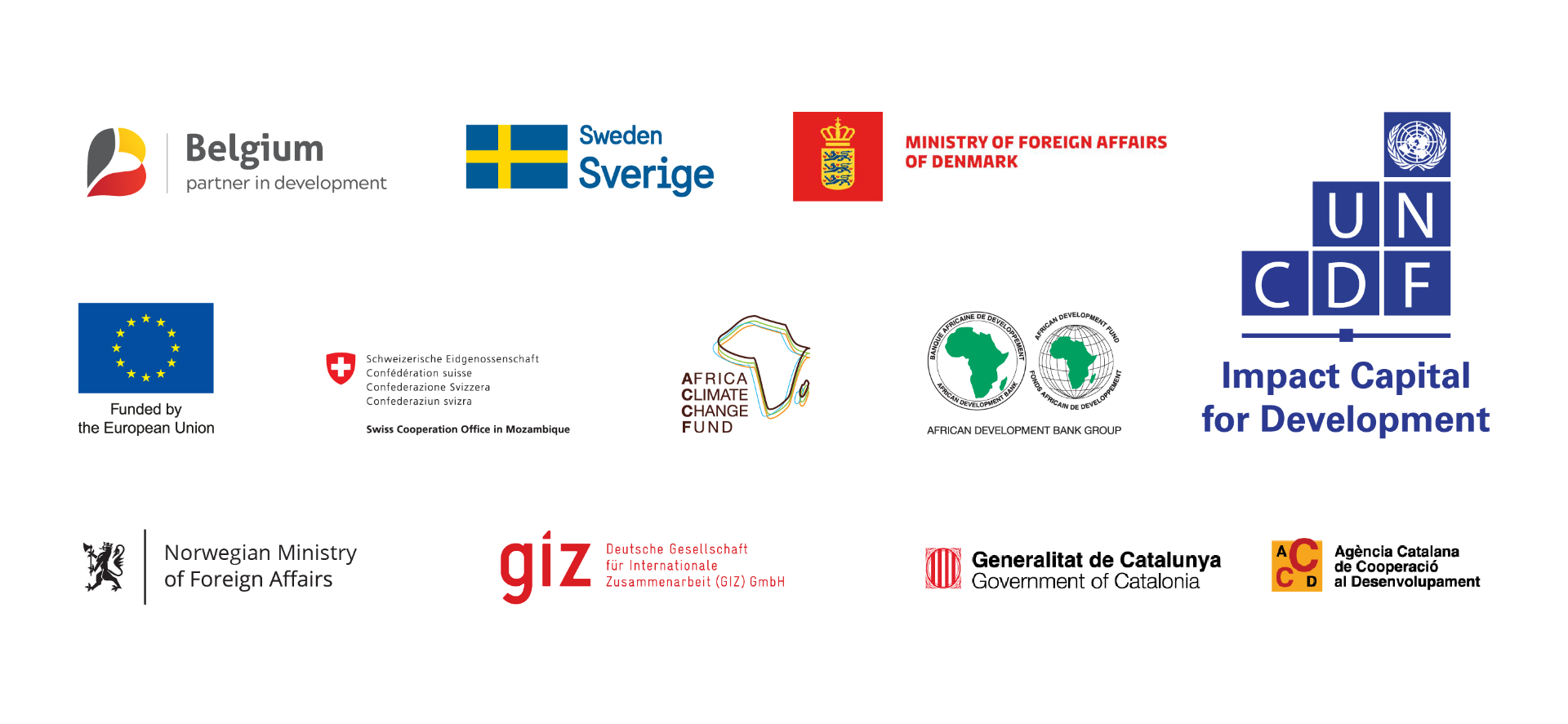Mozambique Expands Locally-Led Climate Resilience, with support from the European Union
Tags
With support from the European Union and UNCDF, Mozambique expands the MERCIM project that reduces climate vulnerability through action by local governments.
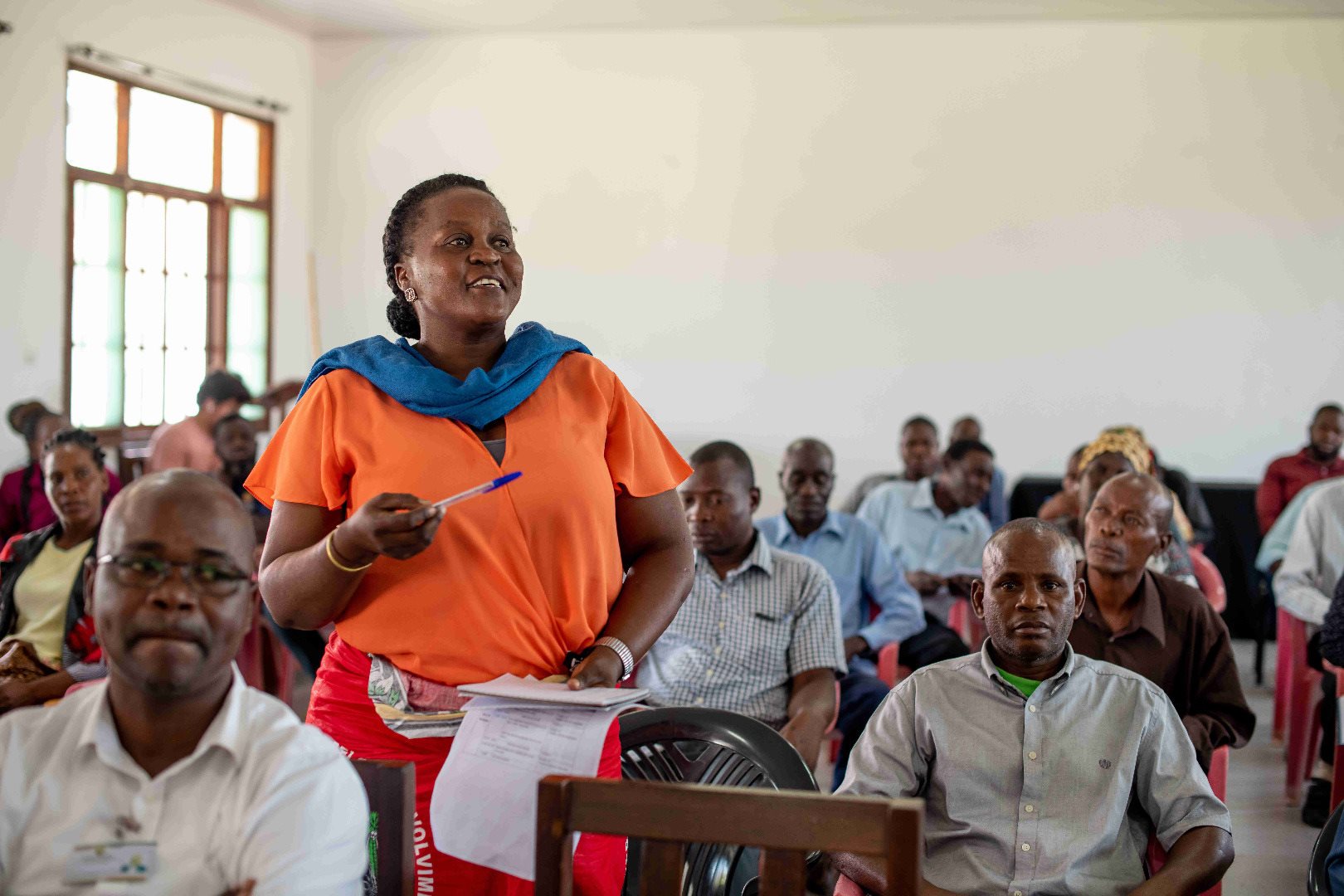
Photo: Consultative Council Member in Machanga district, Sofala province, one of the new districts contemplated by MERCIM+, discuss resilient investments in her community. Credits: UNCDF/Zango
The Government of Mozambique and the European Union signed a 4,5 year agreement worth EUR 10 million to expand climate finance in the country through the Improving Local Climate Resilience in Mozambique (MERCIM) Program, technically supported by the United Nations Fund for Capital Development (UNCDF).
The announcement was made during the MERCIM Program Steering Committee this Friday, March 17, after a capitalization workshop on good practices to share learnings about the capacity of subnational governments to reduce climate vulnerability through locally led action.
The MERCIM Program was created in 2019 by the Ministry of Land and Environment, aimed at four districts (Memba, Mopeia, Morrumbala and Mossuril), in the Provinces of Zambezia and Nampula, selected in consultation with the Government of Mozambique and its development partners. With its expansion, MERCIM+ now covers 10 districts in four provinces, including Cabo Delgado, Nampula, Sofala and Zambezia.
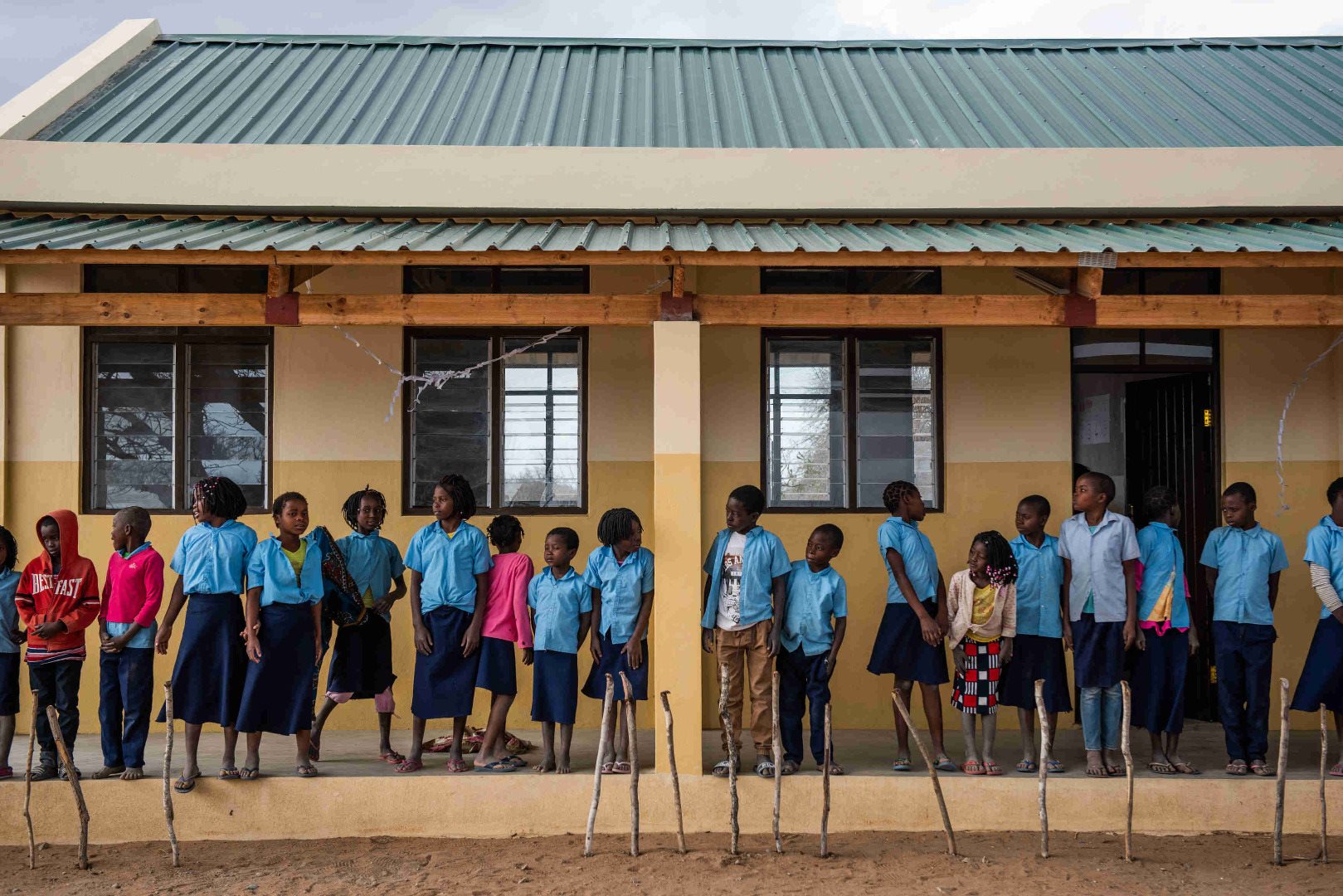
Photo: Resilient Primary school built as part of the MERCIM activities. Credits: UNCDF/ Philip Hatcher-Moore
“Nature continues to test our response and preparedness capabilities against extreme weather events,” said Permanent Secretary of the Ministry of Land and Environment (MTA), Ms. Emilia Fumo. “We feel firsthand what the impacts of climate change are and a clear example of this is cyclone Freddy that is currently hitting the country and cyclone Gombe last year, both exactly in the provinces where we have implemented MERCIM,” she continued.
According to MTA's Permanent Secretary, what was done during the last years of the program's implementation prevented the loss of lives and essential infrastructure, as well as the continued provision of essential basic services.
“We need to strengthen the capacity of local governments to adapt to the changing climate so that the impact of extreme weather events is less and less; And that means expanding the MERCIM project to the entire country,” said Ms. Emilia Fumo.
Mozambique is among the top three countries in Africa most vulnerable to climate change. In the last decade, Mozambique has been hit by six cyclones and two tropical storms, impacting around four million people. Cyclone Freddy is the latest of these, affecting around 800,000 people.
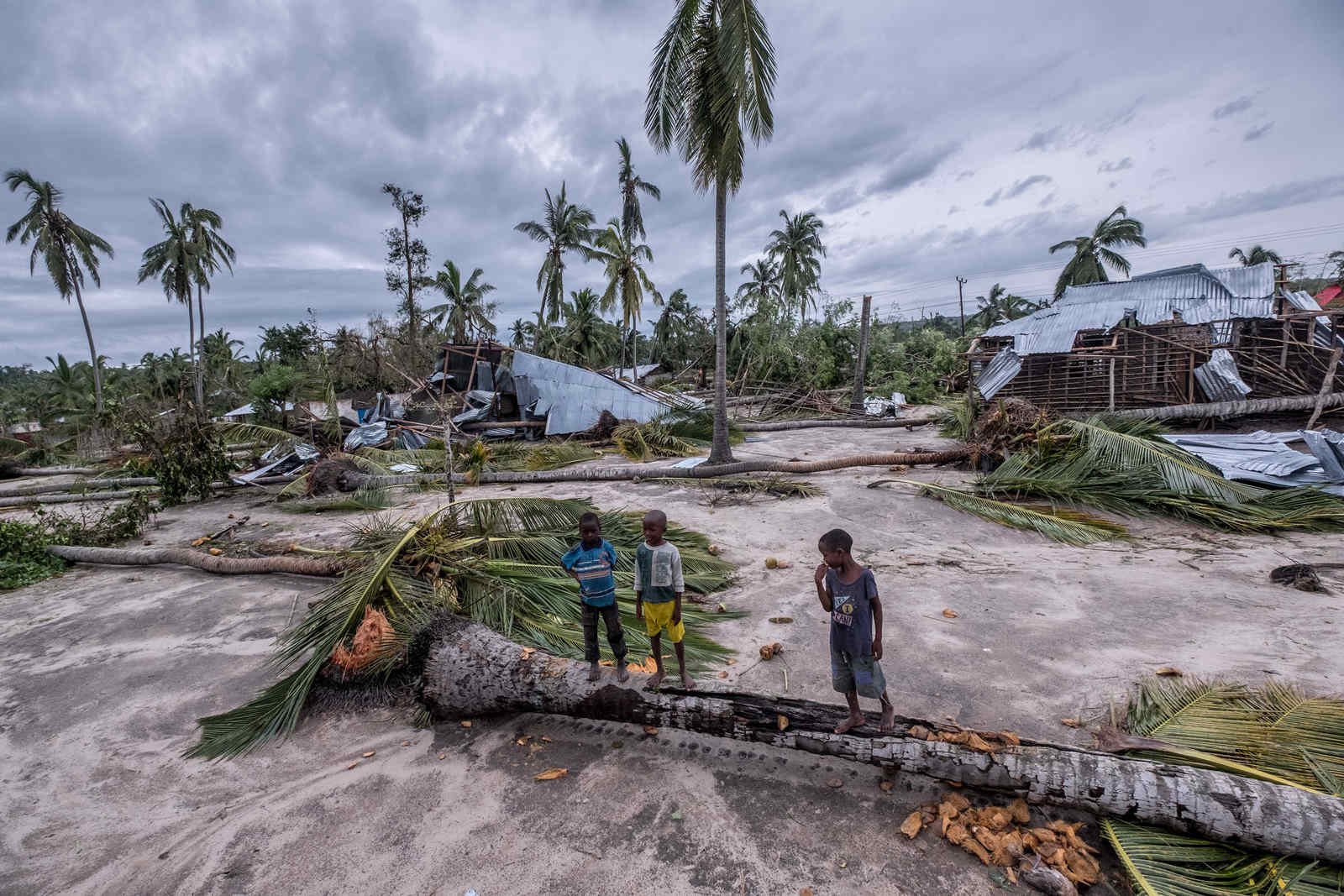
Photo: Scenario of destruction after the second landfall of Cyclone Freddy in Zambezia Province, Mozambique, on 12 March. Credits: INGD Mozambique
During her speech, the Head of Cooperation of the European Union in Mozambique, Ms. Paula Vazquez Horyaans, stated that “supporting adaptation to the impact of climate change is a key priority for the European Union.”
“We have supported the government in implementing its environmental and climate policies and programs since 2010 through various initiatives; It is our intention to maintain this role in the future,” Ms. Paula Vazquez Horyaans, Head of European Union Cooperation in Mozambique.
For Mrs. Horyaans, support for the implementation of the Nationally Determined Contribution of Mozambique assumes a central place in the multi-annual cooperation program of the European Union with the country, in which “MERCIM holistically supports the three levels of government to implement climate adaptation strategies and actions for the benefit of all Mozambican men and women.”
Strengthening the capacity of local governments
MERCIM uses UNCDF methodologies that strengthen the capacity of local governments to improve the delivery of climate-resilient basic services to communities and to enhance decision-making processes based on local knowledge.
This means providing capacity building and technical assistance to governments so that communities can actively participate in planning, budgeting, and other local governance processes in a gender-sensitive manner.
To do this, it uses a participatory, bottom-up approach to challenges, which through the use of local consultative councils ensures essential buy-in at the local level. First, local communities are engaged in what they consider to be their greatest needs, proposals are forwarded to local and then provincial administrations.
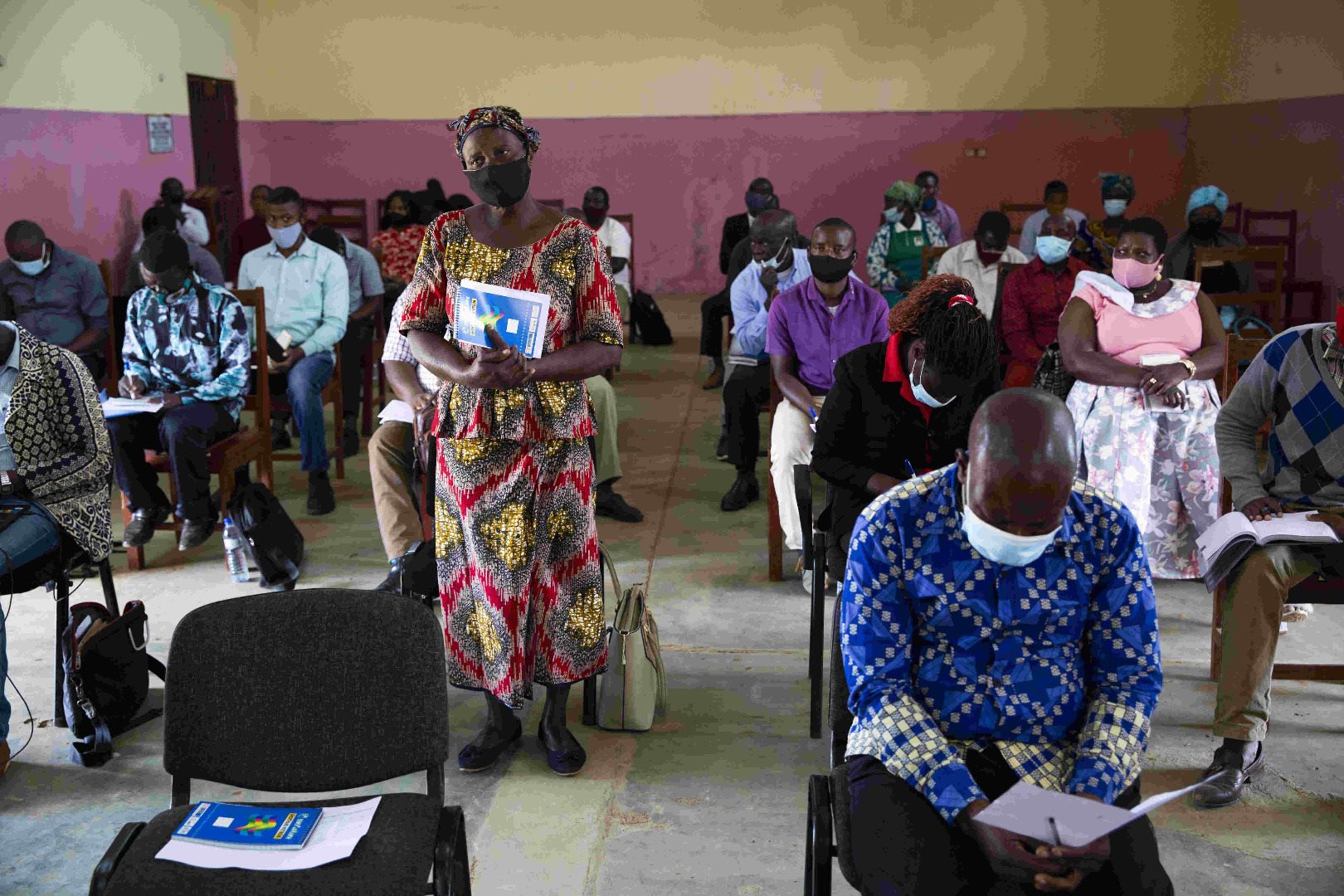
Photo : Consultative Council members participate in discussions during the prioritization exercise of the resilient investment project in Morrumbala, Mozambique, in which all residents are represented. The Council decides which project to prioritize based on specific local needs. These vary enormously from district to district, as the impact of climate change takes many forms. Credits: UNCDF/Karel Prinsloo
“The inclusive and participatory approach has been central in the implementation of MERCIM in all districts, both in deciding on climate resilient investments, but also in integrating climate change adaptation into local budgeting and financing instruments and planning,” said Ramon Cervera, UNCDF representative in Mozambique.
“We as UNCDF are here to technically support capacities that already exist at a decentralized level and use the knowledge of local communities to fight climate change,” continued Ramon Cervera.
MERCIM uses channels climate finance to local government authorities for locally led adaptation, using Performance Based Climate Resilience Grants. Such grants provide additional funds to cover the extra expenses of making local investments climate resilient and include minimum conditions and performance measures that inform subsequent PBCRG allocations.
Since the inception of MERCIM, 26 activities and resilient infrastructure have been fully funded, with 18 completed and accounted for in target districts. All these infrastructures and investment projects were identified, prioritized, selected, and approved by the population of the districts together with local governments, taking into account the existing Local Adaptation Plans - a key tool of the National Strategy on Climate Change Adaptation and Mitigation.
Altogether, through MERCIM, 18 Local Adaptation Plans were created in Nampula and Zambezia, covering all districts of both provinces. Throughout Mozambique, there are 33 Local Adaptation Plans, including 30 funded by the European Union and all technically supported and carried out through the partnership of the Government of Mozambique with UNCDF.
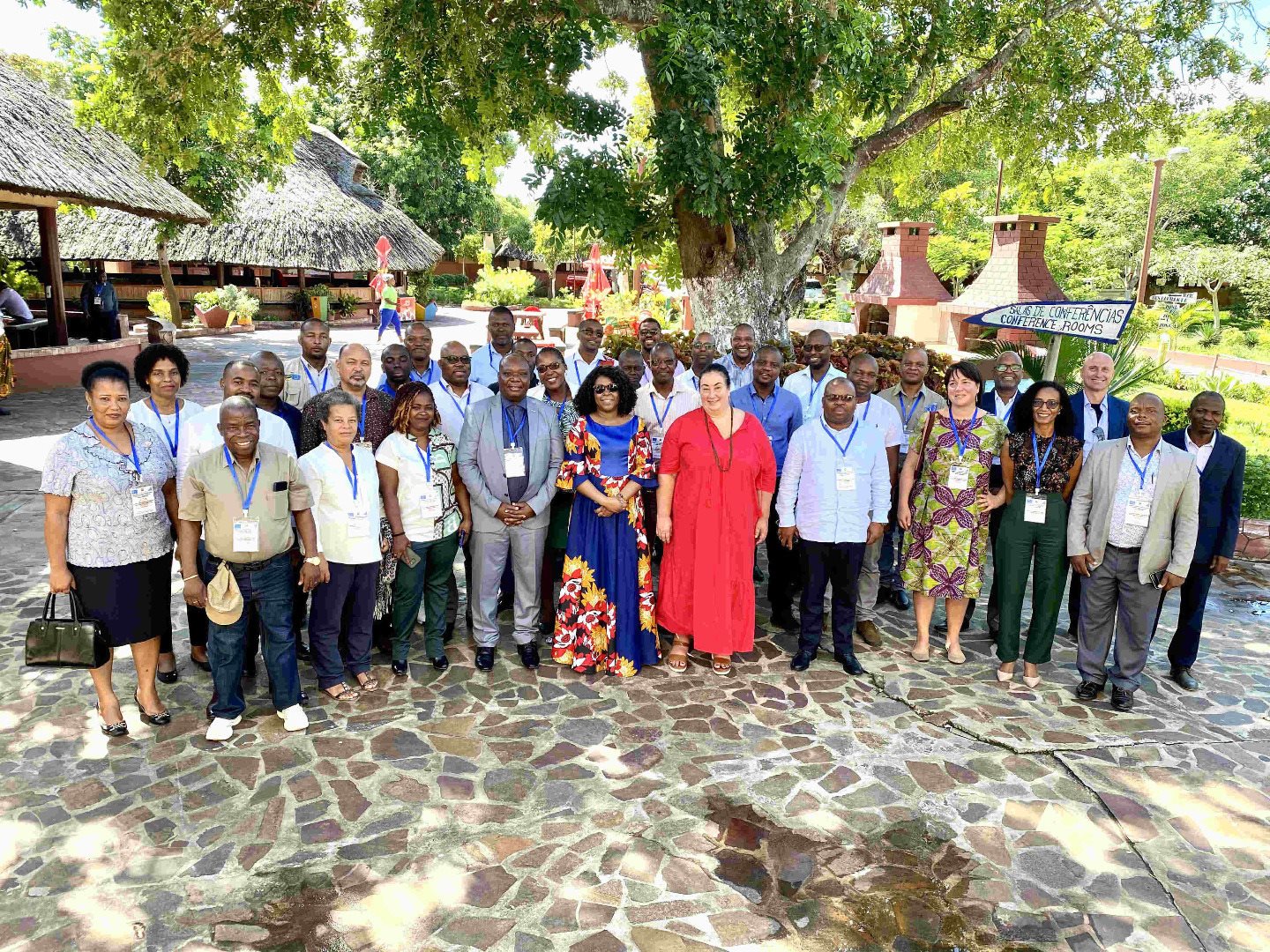
Photo: Participants of the MERCIM Program Steering Committee after signing ceremony of the expansion agreement of the project. Credits: UNCDF/Helvisney Cardoso
For more information about LoCAL:
Thanks to the support of:
